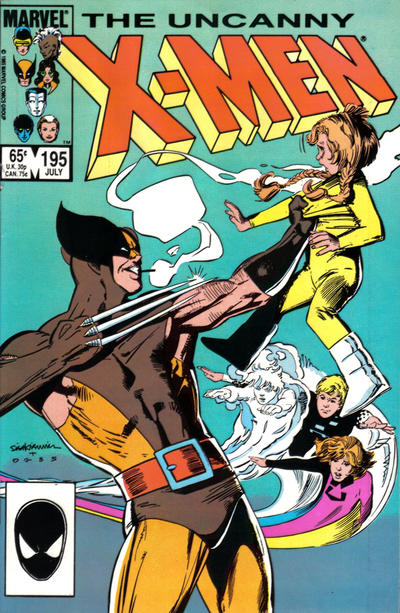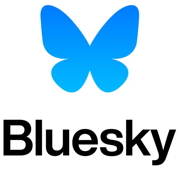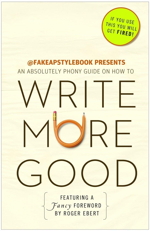That X-Men cover never fails to make me laugh, because I’m a bad person.
Sorry, was too pooped to post these last few nights, but here I am again, still alive and mostly aware. Let’s dip back into your questions from a little while ago:
Hooper Triplett doubles down on
“Outside of nostalgia and/or habit, why should I buy single printed issues instead of digital or print collections?”
Well…yeah, sure, that’s a good question. It all comes down to personal preference, I suppose, though there had been the economic reason of a periodical not lasting long enough to get a trade because of the perception that people were waiting for the trade and thus didn’t get enough sales to keep going. That was a tricky balance (Fables always stood out to me as one of comics that seems to maintain the right measure of “people reading the monthlies” vs. “waiting for the collections”). I don’t know how much digital downloads have affected that particular division, if those sales would be enough to subsidize the continued printing of physical copies of a title underperforming in the direct market.
Anyway, trying to pick one format over the other strictly for economic reasons (both the publishers’ and your own) is beside the point: you need to read comics in whatever way is preferable and convenient to you, naturally. I personally prefer having the monthly (or biweekly, or semi-annual) magazines in hand, as they’re just easier for me to read and enjoy in smaller doses, versus waiting for an eventual collection to plow through (though I don’t mind those for older material). And my brief dabblings in digital make for a novel experience, but I just like having the actual comic in hand when I have a choice.
So read ’em however you like, Hooper! Just be sure to buy plenty of them from me.
Kirk beams in the following
“Where did your love of Swampy & Sluggo begin & do you also love Sgt. Rock ( please say yes )?”
I shared the origin of my Sluggo love way back when, back when I thought I was going to end my Sluggo Saturday posts. In short: a friend turned me on to Nancy and Sluggo in particular, and I hope over the years I turned some of you on to them as well.
My love of Swamp Thing came about through a combination of finding a couple of issues of the original series in a used book store (oddly enough, not Wein ‘n’ Wrightson issues, but these two), and this very early Nickelodeon program I discussed here about five years ago (which did feature Wein ‘n’ Wrightson). That’s pretty much where it all began!
And yes, don’t you worry…I do love Sgt. Rock comics as well. Didn’t read nearly as many of those as I should, but I did have a few scattered issues and a digest reprint and that one team-up with Superman. I specifically remember buying this issue and this one off the racks at the local convenience markets.
Always found Sgt. Rock comics to be well-illustrated, usually short, punchy self-contained stories, that ran the gamut from tragic to heroic to sometimes a tad preachy but generally just preachy enough. They were essentially the Platonic ideal of A War Comic, and it’s a shame that specific kind of book is missing from the stands.
King of the Moon crowns me with
“Greatest hero who got their powers from a space wizard horse:
Alex Power, Julie Power, Jack Power or Katie Power?”
I’m gonna have to say Katie, because she’s the Power Pack member featured on this, the greatest X-Men cover of all time:









The problem that I have with Sgt. Rock is the problem I have with every series that Robert Kanigher wrote. Supposedly, he firmly believed that he was not being paid enough to put much effort into his scripts, and so he would always sit down at the typewriter without thinking beforehand what he would do, and would just make the story up as he went along. I can easily believe this, because the great majority of his stories fall into two categories. There are the stories that are just strings of incidents (Sgt. Rock has to get from place A to place B, and fights three battles along the way; Wonder Woman has to deliver a package from one end of Paradise Island to the other, and fights three monsters along the way), ending when the predetermined page count has been reached, and the stories in which one point is made early and everything that happens keeps coming back to that one point. For example: Sgt. Rock saves a gypsy fortune teller from the Nazis, and she rewards him by reading his future. Alas, she tells him that he will be in the grave before the day is over. He is then caught in three successive fire fights; each time he assumes that he will not survive, but at the last moment he pulls through; then, a few minutes before midnight, there is one last battle in a cemetery, during which Rock saves himself by taking cover in an open grave, and he realizes that is what the gypsy meant. (I do not recall this exact plot being used, but I would not be surprised if it was.)
I mean, these sorts of things pall after a bit.
By the way, as I do not use Twitter, I will use this opportunity to point out to you the actual best use of a certain line:
https://www.youtube.com/watch?v=3Za6KxgFcXo
“Supposedly, he firmly believed that he was not being paid enough to put much effort into his scripts, and so he would always sit down at the typewriter without thinking beforehand what he would do,”
I can’t speak of Kanigher in particular, I’ve only read a handful of things by him.
I’ve encountered this attitude a number of times in other people during my life, though, and my impression is that this type of person does not believe they could produce higher-quality work even if they did invest the time. The lack of time investment and cavalier attitude are there mostly to cover up their actual lack of talent, or at least lack of confidence in that talent.
Kanigher stories were written to be read by themselves, separated by time. Reading them in large collections really does reinforce the patterns and repetition. Which is why I always felt DC should do war reprints as anthologies so that you get a variety of formulas in one collection instead of one formula story after the other. I enjoy my DC War Showcase volumes much, much more if I read them with time in between each story – as they were published and intended to be read.
You have turned me on to Nancy and Sluggo — especially the newest incarnation by Olivia Jaimes — so thank you for that.
I like floppies because I can open them all the way, unlike trades where I have to break the spine to see a double page spread.
Also, it’s fun to read floppies because they retain the thrill of the cliffhanger. AND you get a little chunk of story on a regular basis. With trades, there’s no real suspense and once you’re done you have to wait for ages before the next installment.
Digital doesn’t do it for me — I look at computer screens enough in my daily life.
Finally, aside from the questionable content of that X-Men cover, why is Dan Green inking Bill Sienkiewicz? What a weird pairing.
Correct
The two versions of Sgt.Rock #400 cover prompt me to ask you this question, have you ever had a customer who preferred newsstand covers versus direct market? Someone who thought that what was in the UPC box made a substantial difference to the comic?
I know one retailer who thinks newsstand covers triple the price on back issues and wondered how you stood on that difference.
On the original subject matter, I have trouble even reading online comics. It just feels dirty.
Digital comics came along right when
1) my local LCS where I’d spent every Wednesday with a community of fans folded. I still wanted to read stories every week but was sad to emotionally disconnected from trying to find a new shop.
2) I reached an age where I either needing reading glasses to see that tiny print so being able to zoom in was amazing
3) had to choose between space in the house to store my boxes or an art studio. Art studio won.
I’m not much of a Bob Kanigher fan, although I admit to having read 100s of his stories (I’ve read most of the DC war comics), so obviously I think they are quite readable. I do have friends who were friends of his, and one who knew him as his instructor at the Kubert school. Kanigher never felt he was underpaid at comics, and he was always extremely proud of his work. He was also happy to tell other writers how to improve – well he had been an editor at DC for 25 years, I guess it gets in the blood.